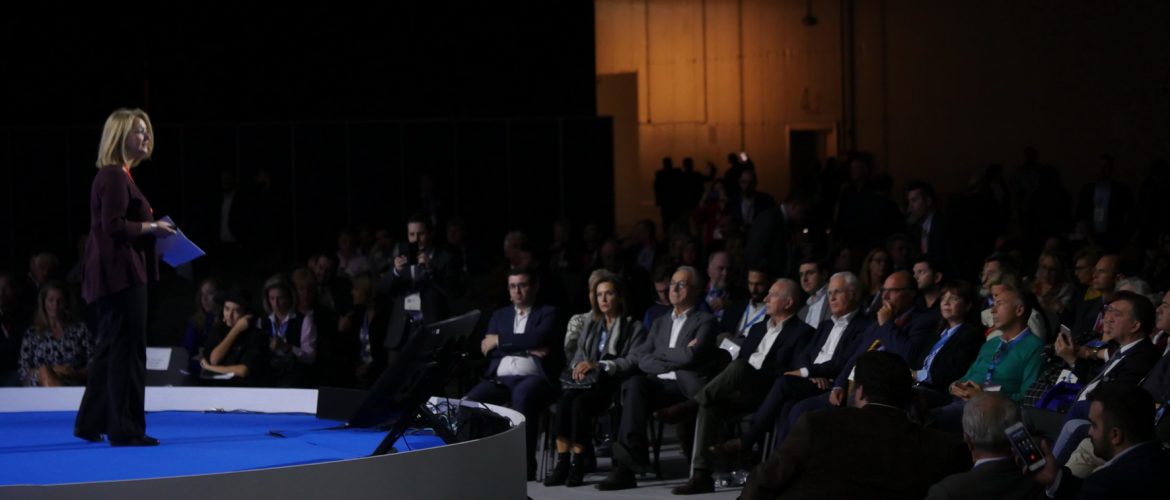Talk by Ioli Christopoulou titled “Climate change is here and it determines our lives” during the 13th conference of Nea Dimokratia (New Democracy) on Saturday November 30, 2019.
The talk was part of the conference session themed “Policy for the citizens: We provide answers to the challenges of the modern world that influence our lives”, during which invited speakers presented their views on two central topics: climate change and skills for the digital age.
Ioli Christopoulou presented how addressing the climate crisis can create new opportunities for action, development and the transition to a sustainable future.
Specifically, she explained how climate change has evolved into a climate crisis. The impacts are already visible and influence every aspect of our lives and economies. Yet, if action is taken now, there is one last chance to contain temperature increase to +1.5oC, after which the impacts will be sweeping. Based on UNEP’s recent Emission’s Gap report action must be drastic and lead to reduction of greenhouse emissions of at least 7% on an annual basis. Hence, changes are needed at every level: from the individual and family level, to that of towns and regions, as well as the corporate and investment levels. Brave decisions are needed particularly at the national and policy levels.
With respect, to Greece, Ioli Christopoulou recognized the historic decision of the Greek Prime Minister to phase out lignite in Greece the latest by 2028. However, she noted that to meet the climate neutrality goals, immediate priority must also be given to phasing out of all fossil fuels, including natural gas and oil. In juxtaposition, a decisive turn towards renewables, which have become competitive with fossil fuels even in economic terms, is needed together with a shift to energy storage, energy efficiency and sustainable transport. Notably, the turn towards renewables must be undertaken in a way that does not threaten the unique biodiversity, the birds and bats of Greece, while it must be based on open and participatory processes.
Notably, in the transformation of the energy sector, the contribution of Western Macedonia and Megalopoli cannot be forgotten. To the contrary, the two regions will need support so that the transition will be just, based on a national plan developed in partnership with all stakeholders and with the provision of adequate funds. The revitalization of the two regions constitutes perhaps the greatest challenge for the transition to a sustainable future that Greece faces.
In closing her speech, she stressed that parallel to investments in climate mitigation, investments will be needed also for climate adaptation. This must not be linked only to technical works rather it must be linked also to nature based climate solution. By providing space to nature, natural infrastructure is created and the defense against the climate impacts is strengthened, while new opportunities for development emerge.

















































































































































































































































































